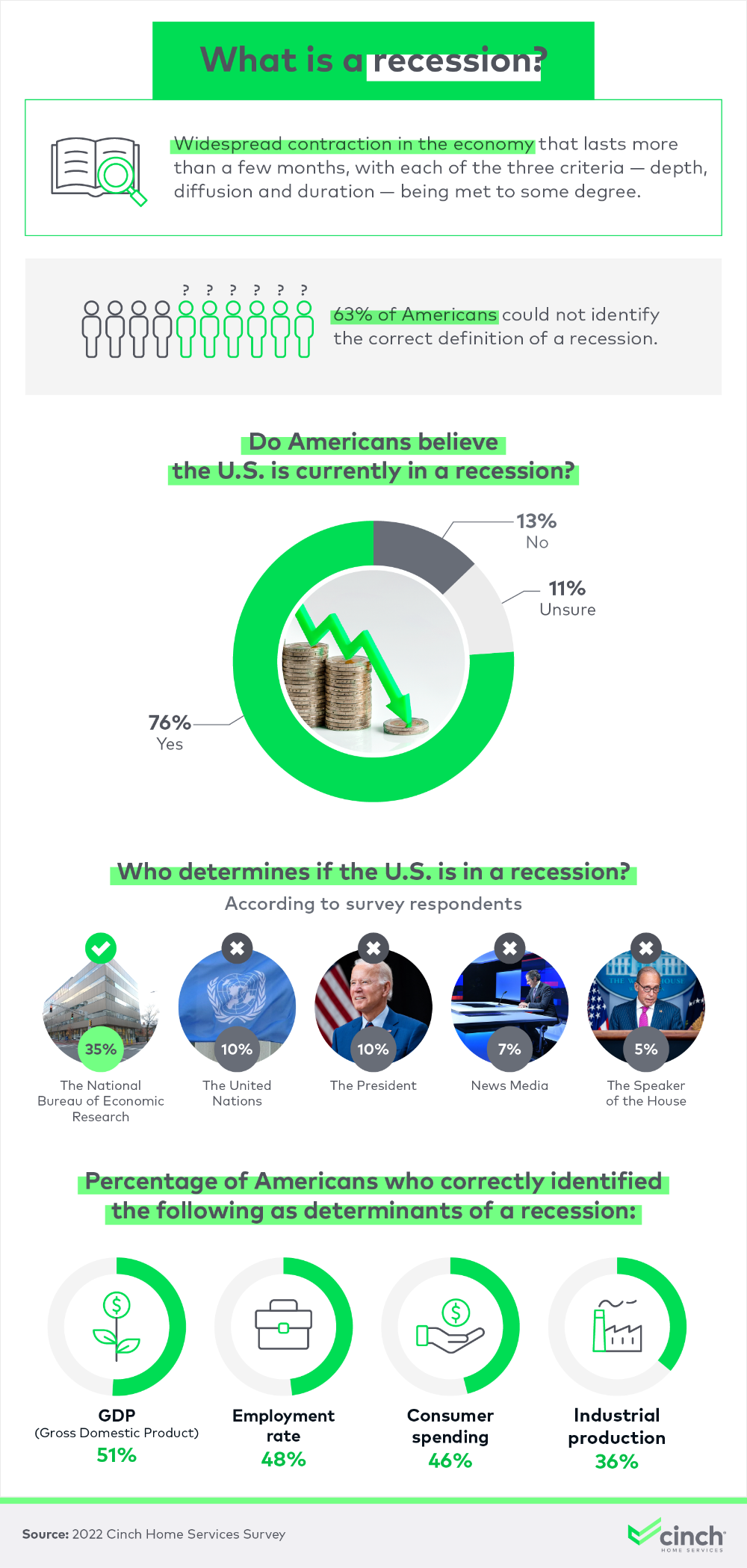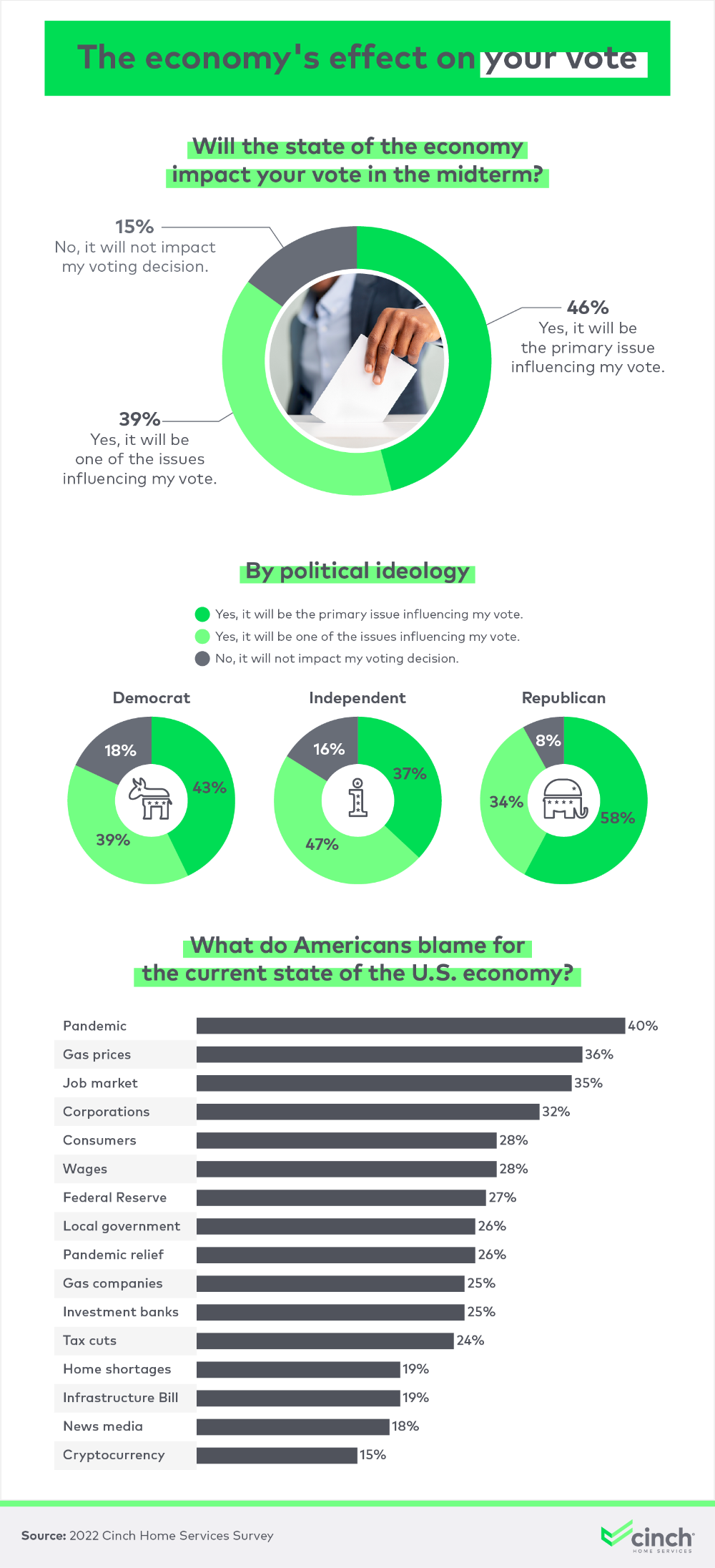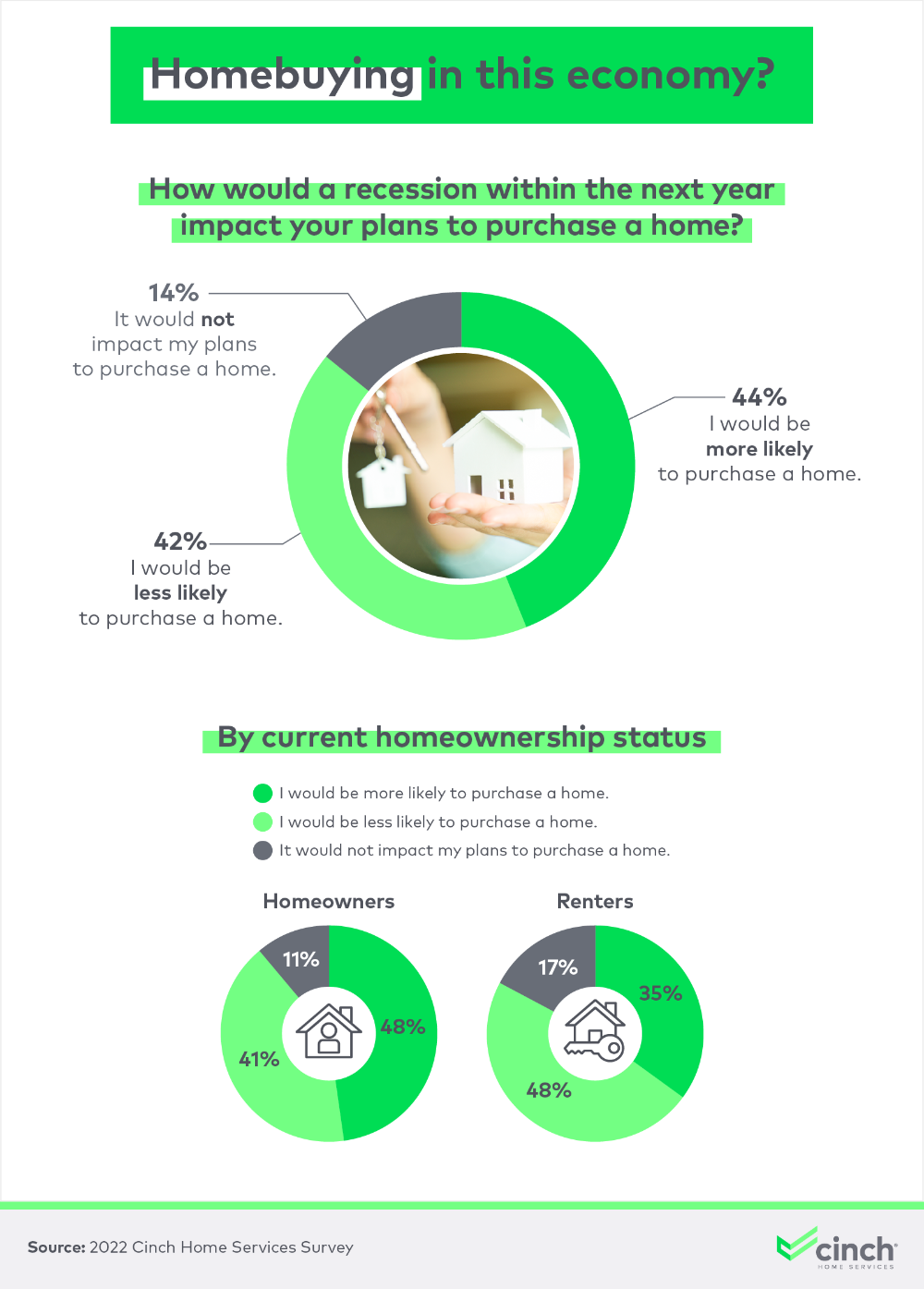What do Americans think a recession means?

Key takeaways:
- 63% of Americans could not identify the correct definition of a recession
- 46% of Americans said the state of the economy would be the primary issue influencing their vote in the midterm election
- 44% of Americans said they would be more likely to purchase a home if the U.S. entered a recession
What exactly is a recession?
"Recession" — the word is taking over headlines and media reports as Americans fear the economy is slipping. But do they actually understand what a recession is, and how do their assumptions impact their behaviors and politics? We recently surveyed 1,000 Americans about the impending economic downturn to find out how many can accurately define the term, what they think is to blame and how it's affecting their voting and spending habits.
Defining and declaring a recession
A recession is complicated to define, but it's important to understand what it means and how it's declared. What is a recession, who determines when the country is in the midst of one and how do they decide?

Despite the fear many Americans have that we're entering a recession, 63% of those we surveyed could not correctly identify the definition of a recession. According to the National Bureau of Economic Research, the correct meaning is a widespread contraction in the economy that lasts more than a few months, with each of the three criteria — depth, diffusion and duration — being met to some degree. But most of our survey respondents believed that a recession means something else. Their false definitions included:
- "Two consecutive quarters of falling real GDP" (34%)
- "A major downswing in the business cycle across many nations: sharply reduced industrial production, widespread unemployment, a serious decline or cessation of growth in construction and great reductions in international trade and capital movements" (20%)
- "A sharp decline in real estate values following a period of inflated housing prices" (10%)
Even with the prevalent misunderstanding of what a recession is, 76% of Americans believed the country is currently in one.
Assigning economic responsibility
Given that so many Americans believe the country is in a recession, who or what do they blame for it? And how might a recession (official or perceived) impact their votes?

The points of blame for the American recession vary greatly. There is, however, one guilty party everyone can agree on: the pandemic. Democrats, Republicans and Independents alike named the pandemic the No. 1 cause of the nation's current economic plight. This belief is likely due to the National Bureau of Economic Research (NBER) declaring a recession in 2020 when the pandemic had the highest impact. All voters also agreed that the job market and gas prices were to blame.
|
Democrats' Top 5 Recession Causes: |
Independents' Top 5 Recession Causes: |
Republicans' Top 5 Recession Causes: |
|
|
|
Whatever the cause, the effects of a recession will have a huge impact on the upcoming primary election. The vast majority of voters — 85% — identified the economy as a significant, if not primary, influence on their vote. This belief was especially true among Republicans, with 92% saying so. But those of other political affiliations were nearly as likely to express the same sentiment: 84% identified as Independent, and 82% were Democrats.
Would you buy a home during a recession?
The housing market was one of the industries most heavily impacted by the pandemic. What effect might a recession have on the purchasing plans of prospective homebuyers?

The potential impact of a recession on home buying seemed to be nearly split among our respondents: 44% said they would be more likely to purchase a home in the event of a recession, while 42% said they would be less likely. Many respondents may have thought that a recession might help their chances of buying a home, but sadly, that's not likely the case. After all, there's still a housing shortage in the U.S.
Meanwhile, renters expressed a slightly greater difference in their responses. Only 35% said a recession would make them more likely to purchase a home, and 48% said it would make them less likely. It's easy to understand this dichotomy since a recession could increase rent in some places and lower it in others.
Recessions are relative — and temporary
While many Americans don't fully understand what a recession is, one thing is clear: They overwhelmingly believe we are experiencing one. People may not see eye-to-eye on who or what is causing the recession (other than the pandemic as a whole), but most agree that a recession is of great concern to our nation and should play a significant role in future elections.
For some, a recession brings hope for the future and a chance to invest in a new home. For others, a recession brings fear of the future and a cause for conservative spending. For the rest, it's business as usual. Whichever way you spin it, recessions are temporary. Eventually, the nation will come out the other side.
Methodology
Cinch Home Services surveyed 1,000 Americans to see if they could define a recession: 43% of the respondents were Democrats, 33% were Republicans, 20% were Independents and the rest were non-affiliated. When looking at homeownership status, 72% were homeowners, 24% were renters and the remaining 4% were living somewhere without payment.
About Cinch Home Services
With more than 40 years of home industry experience, Cinch offers award-winning home warranty services. Cinch has a range of plans to fit your needs, a nationwide network of service pros to ensure your repairs get done right and an industry-leading 180-day craftsmanship guarantee to back it all up.
Fair use statement
Do you know someone who's confused or concerned by a possible recession? Feel free to share these findings for noncommercial purposes, but please provide a link to this page.



